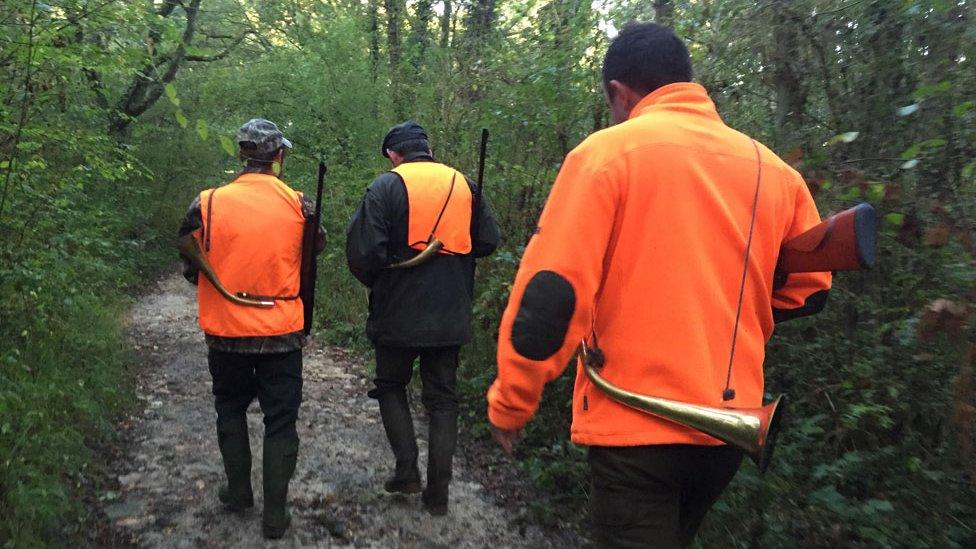Arsenal owner Kroenke's hunting TV app sparks protests
- Published
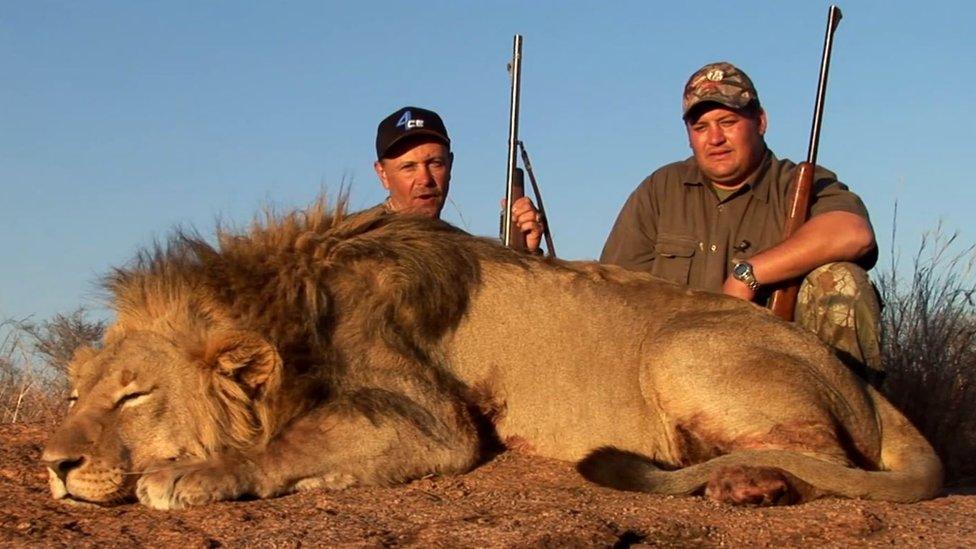
It's a typical example of the kind of footage that has prompted furious reactions from animal lovers.
As two Americans shouldering their guns make their way through the African bush, the emphasis is on relishing the risk and talking up the danger.
"It's not a game. These are big powerful cats. They wouldn't think anything of taking out a human."
Scenes like these, plus rather tamer bird-shooting and fishing footage, can now be seen in the UK via a new app.
US billionaire Stan Kroenke, owner of Arsenal Football Club, is taking his online hunting channel, MOTV, to an international audience.
The app will soon be marketed in English-speaking countries around the world including Australia, New Zealand and South Africa.
But Arsenal fans and animal welfare groups are outraged, with some calling for a boycott of the football club.
Finally, after "days and days of boredom", the Americans do track down and kill one of the "big five".
"You gotta get over here!" They slap shoulders and congratulate themselves on a "quick, clean, humane" shot.
"We have us an African lion."
Other videos on the site are more upsetting with animals that have been shot with bows and arrows limping for some time before they die.
Huntin', shootin', fishin'
Big game hunting is a small, though eye-catching proportion of MOTV's content.
In the US, where the app launched last year, the majority of the films are of white tail hunting and other typical North American quarries.
The aim is to localise content to appeal to national audiences, said Simon Barr, speaking for Outdoor Sportsman Group, the company behind the app.
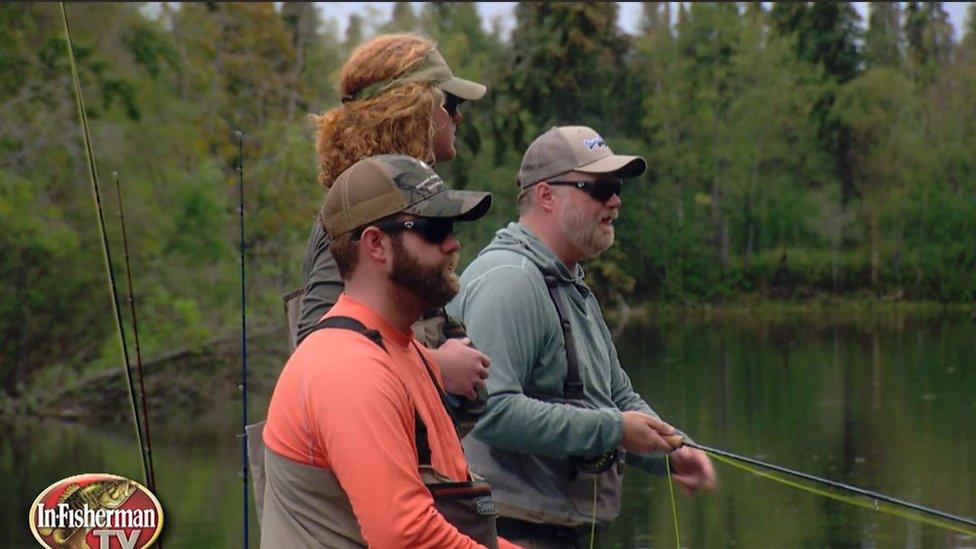
Less dramatic content focuses on fishing
"There will be fishing, shooting, hunting that's relevant to the UK, so deer-stalking in Scotland, for example.
"There'll be some pheasant-shooting on there. There'll be salmon fishing, fishing on the coasts."
The platform also hosts cookery shows to show how to prepare wild game meat, with plans to work with UK-based chefs in the pipeline.
Higher standards
Mr Kroenke, the sports and entertainment billionaire who controls Arsenal Football Club, owns the company behind the new web channel, a small part of his huge Colorado-based sporting empire, Kroenke Sports & Entertainment.
But the channel, which is available as a paid-for subscription, has met with a critical reaction following its UK launch, as animal rights charities oppose what they say is a "cruel" pastime and question whether people will want to watch.
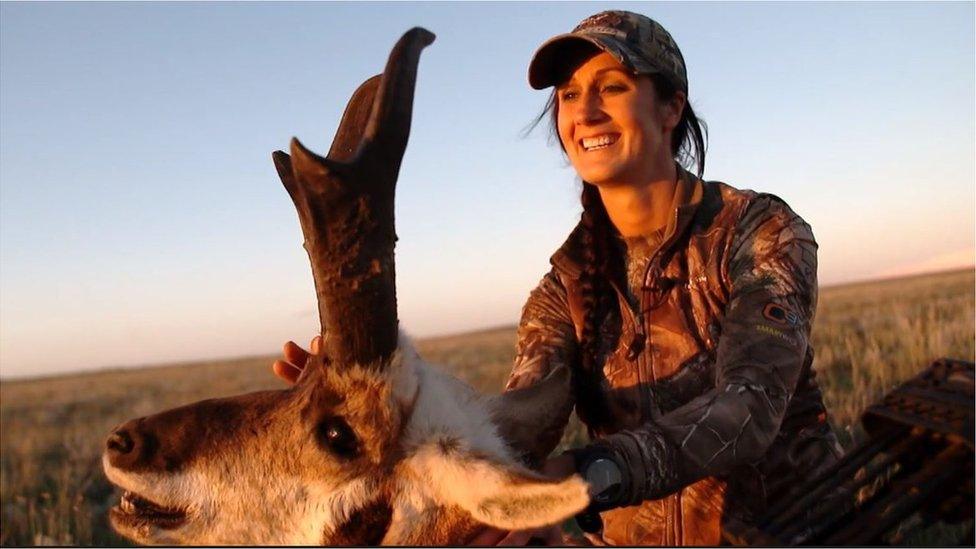
Most of the films are of North American hunts
Mr Barr said objections were misplaced given that hunting videos were already widely available on the internet already and that MOTV would promote higher standards.
"It's guaranteed any hunting that's on there will have be done in an ethical, fair-chase way and it will have been done legally," he said.
'Own goal'
But animal welfare group the League Against Cruel Sports is sceptical.
"We think Mr Kroenke is out of touch with the way most people are thinking," said Chris Pitt, deputy director of policy campaigns and communications.
"We're not in the old days when hunters went out to bag an elephant and put its head on the wall.
"So for someone in a position like Mr Kroenke to launch a channel that's so out of touch with what people want is an own goal to say the least.
"The reality of trophy hunting is that a lot, if not most, of these animals will not be killed cleanly, they will suffer long painful deaths - and so on the welfare argument alone, hunting like this should be banned."
Conservation funding
Some of the contributors to the channel promote themselves as conservationists, tapping into a highly contentious debate around whether it is ethical and effective to raise money to protect wildlife by charging high fees for trophy hunting.
"Hunting adds very good dollars into conservation and it is an absolute driver for keeping some of these endangered species alive and that's very, very important," said Mr Barr.
The wildlife charity WWF said it accepted trophy hunting "in a very limited number of contexts where it is culturally appropriate, legal and effectively regulated. It must also demonstrate clear conservation and community benefits."
Pitt rejects the argument that it raises significant amounts of money for conservation.
"That's what they've been saying for years, but more and more studies show that's not actually what's happening," he said.
- Published21 July 2017
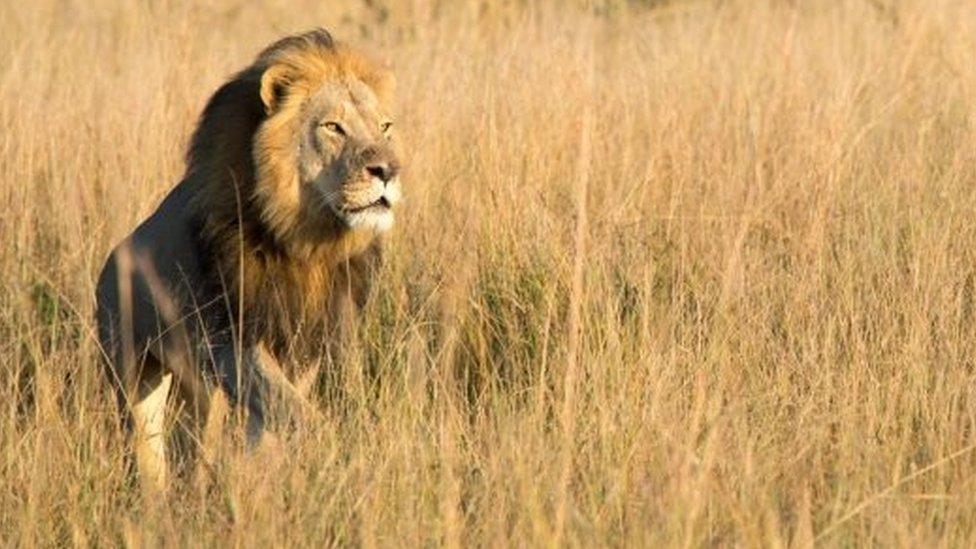
- Published27 June 2017
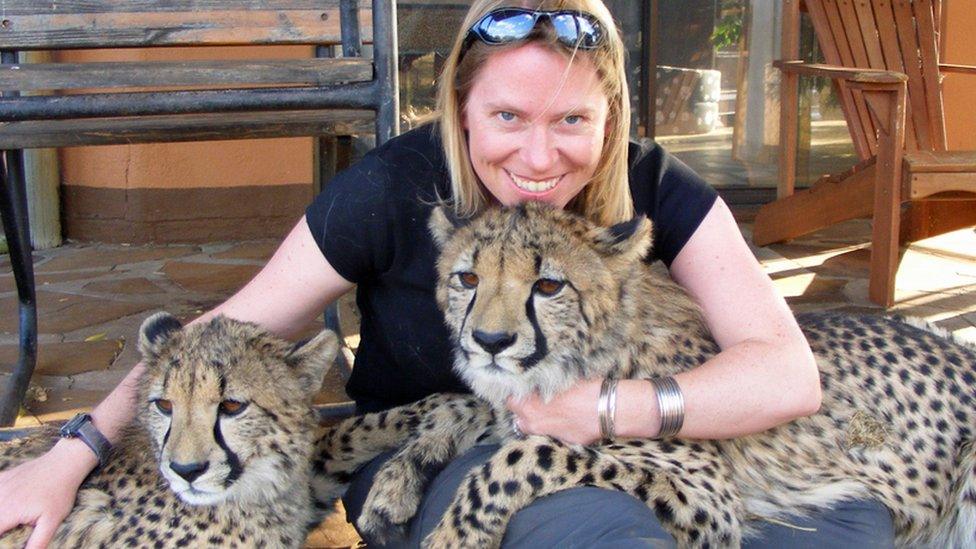
- Published4 November 2016
